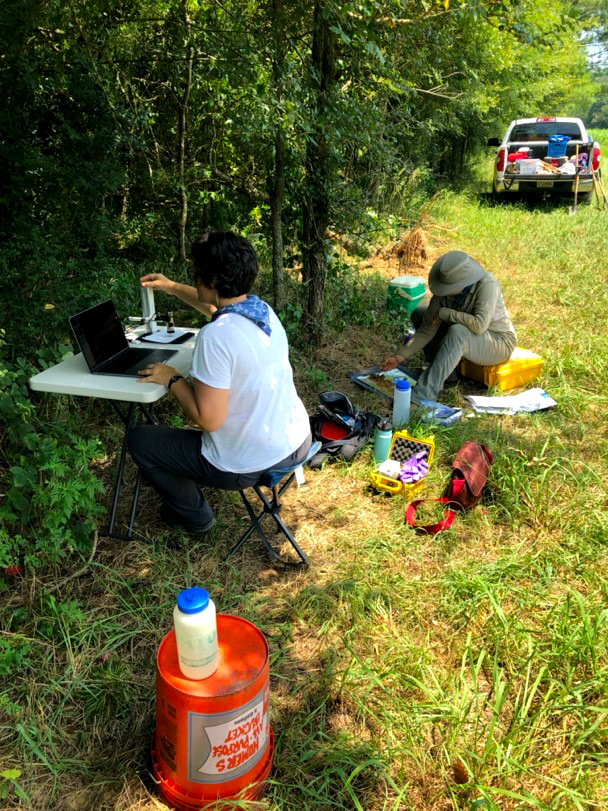PhD Program

The PhD degree in geography requires the following:
- a minimum of 48 hours of coursework beyond the baccalaureate degree (that may include up to 24 credit hours of approved graduate-level coursework transferred from a master’s program and a maximum of 12 hours of non-thesis or non-dissertation research)
- 24 hours of dissertation research
- a dissertation
The program includes 14 hours of required coursework: GY500, GY523, and two geospatial techniques courses.
Master’s Program
The MS degree in geography requires a minimum of 30 semester hours of graduate coursework and a successful thesis defense. The 30 hours of required coursework for the MS include
- 6 hours of program requirements (GY500 and GY523),
- 6 hours of thesis research
- 12 hours (minimum) in a focus of the student’s choosing
The remaining 6 credit hours may be selected from the other focus areas or, with advisor approval, from related courses offered in other departments.
Each student should work closely with the thesis advisor to create a curriculum of study tailored to his or her academic and career goals.
Non-Thesis Track
A non-thesis track MS degree is available, but it may be pursued only with advisor consent and should not be pursued under most circumstances. The overwhelming majority of MS students in the program complete a thesis.
Areas of Focus
Earth System Science
The earth system science focus includes atmospheric, hydrological, ecological, and earth surface processes and the synthesis of these fields to improve our understanding of the earth as an integrated system.
Environment and Natural Resources
The environment and natural resources focus includes earth and environmental processes and the methods by which resources may be sustained. Students learn to conserve, protect, and utilize natural resources while maintaining the integrity of natural systems.
Environment and Society
The environment and society focus addresses the need for training in urban, regional, and environmental analysis and planning; location theory; and environmental impact assessment. Students are exposed to current environmental issues and policies.
Geographical Information Science (GIS)
The geographic information science focus includes spatial modeling, remote sensing, geographic information science (GIS), and computer cartography.